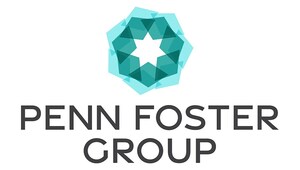
Pilot Launch Reveals 19% Increase in Engagement—New Study Highlights Impact of Human-Centered Online Learning
PHOENIX, April 1, 2025 /PRNewswire/ -- Newly released research from Penn Foster Group, a leader in online education and workforce training, underscores the impact of learner-centered course design on student success, highlighting significant improvements in engagement, retention, and completion rates. The study focused on revisions to Veterinary Technician Biology and Dental Assistant courses, conducted through Penn Foster Group's Design Lab, launched in 2023. By applying the LAADS (Learner-centered, Authentic, Active, Differentiated, and Skill-based) model, the research explored how motivation-driven, skill-based learning experiences could enhance online student success—addressing key barriers like accessibility and engagement while preparing students for workforce success.
The landscape of online learning has experienced profound shifts over the past decade, driven by innovations in technology, cognitive sciences, and the rise of generative AI. These advancements have disrupted traditional educational models, reshaping how students engage with content and creating new opportunities to enhance learning outcomes. As the workforce increasingly demands specialized skills and adaptability, Penn Foster Group has developed a research-backed model to transform student learning—equipping them with the knowledge and skills needed to achieve their goals.
The research highlights that students in these redesigned courses reported a 19% increase in engagement, often citing interactive elements like multimedia and simulations as key factors for their heightened interest. This boost in engagement translated into stronger satisfaction scores; Net Promoter Scores rose by seven points, from 41 to 48, reflecting a more positive learning experience.
Course completion rates also saw dramatic improvements. In one Dental Assistant course, the completion rate jumped from 73% to an impressive 92%, while another course saw an increase from 39% to 60%. Additionally, student performance improved significantly. Average grades rose from 84% to 89% in one course and from 80% to 90% in another—clear evidence that students are not only completing their courses, but excelling in them.
"These results reaffirm what we've long believed: students thrive when learning is personalized, interactive, and tied directly to their career goals," said Andrew Shean, Chief Learning Officer at Penn Foster Group. "By focusing on practical application and creating engaging experiences, we're helping learners not just succeed academically, but also prepare for real-world challenges."
The study also highlighted opportunities for further refinement. Students expressed a strong preference for more interactive simulations and instructor-led videos as well as detailed feedback on assessments. These insights will guide Penn Foster Group's ongoing efforts to enhance its courses and ensure they meet the evolving needs of learners.
As demand grows for flexible, career-aligned education options, Penn Foster Group remains committed to delivering high-quality learning experiences that empower students to achieve their goals.
The research, authored by Dr. Andrew Shean, Chief Learning Officer at Penn Foster Group, Bivin Sadler, Clinical Assistant Professor of Data Science at Southern Methodist University, and Cynthia Lewis, Director of Product Experience at Penn Foster Group, can be found at https://hstalks.com/article/9094/evidence-based-online-content-design/?business.
For more information about Penn Foster Group visit https://www.pennfostergroup.com/.
About Penn Foster Group
At Penn Foster Group, we are transforming online learning to help learners by bringing together Penn Foster, Ashworth College, James Madison High School, the New York Institute of Photography, the New York Institute of Art and Design, and other education platforms. Together, we create pathways to greater economic mobility through real-world skills and knowledge that may enable them to achieve long-term success in the workplaces of the future. Our history dates back to 1890 when our founder, Thomas Foster, pioneered distance education by offering training by mail for coal miners to get the necessary skills for safer jobs. Today, with the partners who use our education and training programs, we continue that mission of providing accessible training and education for in-demand skills and are building a workforce that's prepared for the future job market.
SOURCE Penn Foster Group







Share this article